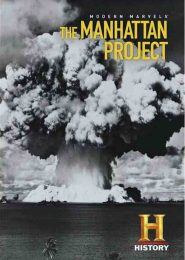Private Warriors (2005)
In the tumultuous aftermath of the Gulf War, a parallel war unfolded—one fought not by soldiers in uniform, but by a clandestine army of civilians. Gary Null’s documentary, Private Warriors, thrusts us into the heart of this shadowy conflict, where profit and patriotism collide.
The Rise of Private Contractors: As the U.S. military grappled with recruitment challenges, private contractors stepped onto the stage. FRONTLINE correspondent Martin Smith embarks on a journey through Kuwait and Iraq, revealing the inner workings of companies like Kellogg, Brown & Root (KBR), a subsidiary of Halliburton. KBR’s 50,000 employees in Iraq and Kuwait run U.S. military supply lines, operate bases, and wield immense influence.
The Camp Anaconda Saga: Camp Anaconda, nestled in the Sunni triangle, emerges as a microcosm of this privatized war. Behind concrete walls, 28,000 soldiers and 8,000 civilians coexist. The base boasts amenities—Taekwondo classes, Salsa lessons, movie theaters, and four meals a day. But luxury comes at a cost. Marine Colonel Thomas X. Hammes aptly labels it misguided luxury—a stark reminder that lives are risked to deliver such comforts.
The Price Tag of Convenience: KBR’s services extend beyond creature comforts. They feed troops, maintain supply chains, and operate bases. Yet, questions linger. How much does it all cost? Audits probe allegations of overcharging in the tens of millions. KBR’s Vice President of Worldwide Military Affairs, Paul Cerjan, asserts transparency: “We are not afraid of that process.” But the truth remains elusive.
The Other Contractors: Beyond logistics, another breed of contractor thrives—the security teams. Firms like Blackwater, Aegis, and Erinys provide armed protection. Their presence is ubiquitous, their actions shrouded in secrecy. These private warriors navigate danger zones, their loyalty divided between duty and profit.
Legacy and Accountability: Private Warriors forces us to confront uncomfortable truths. The Iraq war witnessed unprecedented outsourcing—a policy shift after the Cold War downsizing. The Pentagon, under then Secretary of Defense Dick Cheney, turned to Halliburton. The legacy? A web of contracts, blurred lines, and unanswered questions.
The Call to Vigilance: This documentary isn’t just about contractors; it’s about us—the bystanders, the taxpayers, the inheritors of a privatized war. As the credits roll, we grapple with our role. How do we hold power accountable? How do we ensure transparency? The trial continues, not in courts, but in our collective conscience.
Private Warriors serves as a stark reminder: war’s cost extends beyond bullets and bombs. It seeps into boardrooms, contracts, and the very fabric of our democracy. The private warriors remain in the shadows, but their impact reverberates through history.




